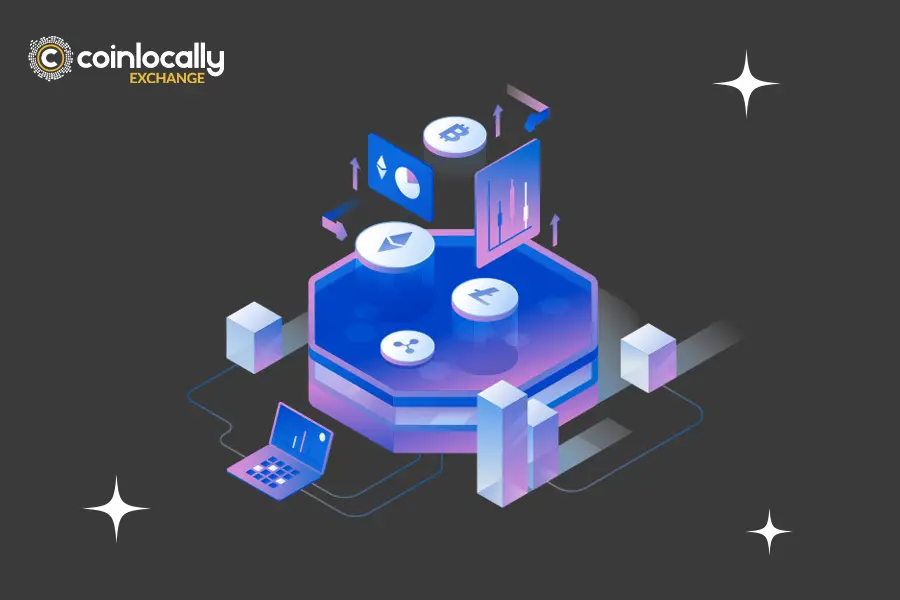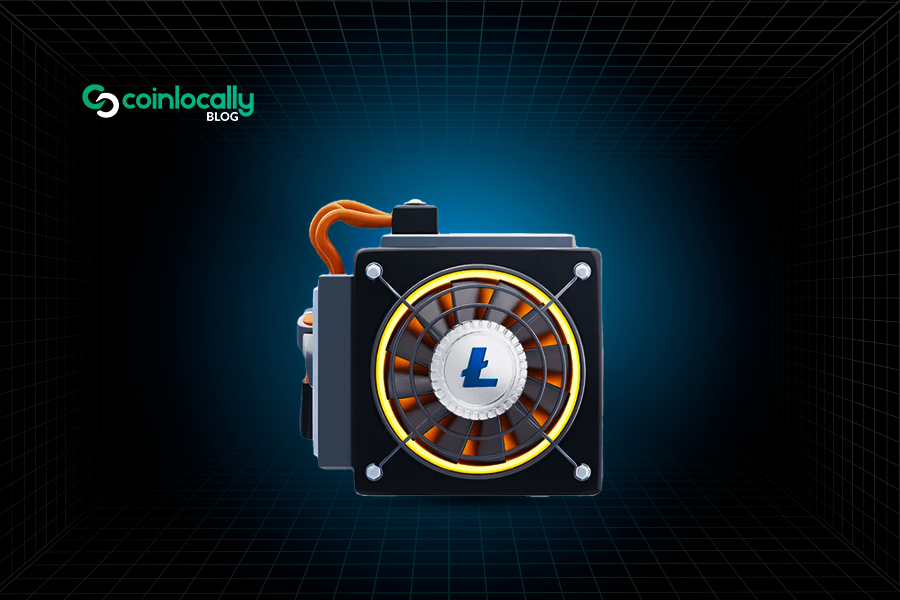Binance’s primary goals have always been faster transactions and lower fees. That’s why it has two tokenization standards, BEP2 and BEP20. In what follows, we’ll learn about BEP2 vs. BEP20 to overview their differences and see which standard operates better.
Table of Contents
What is the Binance Chain?
First, let’s find out where BEP2 and BEP20 come from. Then, we will look closer at BEP2 vs. BEP20 to see what these two popular tokenization standards offer and how they differ.
As the largest cryptocurrency exchange in the world, Binance was developed by Changpeng Zhao in 2017. It features a unique blockchain network with two parallel blockchains, i.e.,
- Binance Chain and
- Binance Smart Chain (BSC).
Binance Chain, also known as BNB Beacon Chain (BNB), was developed by the Binance team in April 2019, just two years after the company was founded. Binance Chain’s native token, BNB, a BEP2 token, can be traded and is used to pay transaction fees on the Binance cryptocurrency exchange.
In addition to Binance Chain, the first Binance blockchain, Binance developed another blockchain in September 2020, Binance Smart Chain, which we’ll explain below.
What is Binance Smart Chain?
Launched in September 2020, Binance Smart Chain is Binance‘s second blockchain. It is not a replacement for Binance Chain but a completely different parallel blockchain (Binance Beacon Chain).
Since the Binance Chain didn’t support Ethereum’s decentralized applications (DApps), Binance strived to tackle this issue and developed the Binance Smart Chain, which is compatible with all DApps built on the Ethereum blockchain. This means it hosts DApps, and Binance DEX is the first DApp to run on it.
Binance Smart Chain uses the BEP20 standard token, which is compatible with both BEP2 and Ethereum’s ERC-20 tokens. The BEP20 format allows Binance to more easily enter the Decentralised Finance (DeFi), NFT, and wider Web3 industries.
BEP2 and BEP20 are the tokenization standards of these chains, i.e., BEP2 in the Binance chain and BEP20 in the Binance Smart Chain.
These two standards include rules and technical fundamentals developers must follow to create new tokens on the Binance Chain and Binance Smart Chain blockchains. Let’s learn more about each one below.
What is BEP2?
BEP2 is the fundamental tokenization standard for the Binance Chain and its native coin, BNB. BEP2 stands for Binance Chain Evolution Proposal 2 and is exclusive to the Binance Chain. This means that the BEP2 tokens can only be used for transactions on the Binance crypto exchange and not in any other blockchain.
Since the BEP2 standard is incompatible with ERC-20 and suffers from programmability issues, it can’t be used to build innovative contract applications.
Therefore, anyone who holds BEP2 tokens can convert them into BEP20 tokens, which can be used on both the BNB Smart Chain and Ethereum. Let’s learn more about BEP20, see why it was developed, and consider what problems it aims to solve.
What is BEP20?
Binance Smart Chain was created to fill the gaps in Binance Chain and facilitate all transaction needs on different DApps. It achieves this goal using the BEP20 standard, which is entirely compatible with Ethereum’s ERC-20 standard.
Inspired by Ethereum ERC-20, the BEP20 standard leads to the development of tokens known for their interoperability, meaning they can easily be converted to ERC-20 tokens.
Moreover, compared to ERC20 tokens, the BEP20 standard leads to lower fees and records more transactions in each block per second.
BEP2 vs. BEP20
To help you understand the differences between BEP2 and BEP20 in a visual and digestible way, we have summarized their networks, consensus mechanisms, transaction fees, smart contracts, token addresses, and compatibility with Ethereum in the following table. Detailed explanations of each are provided in the sections following the table.
| BEP2 vs BEP20 | BEP2 | BEP20 |
| Network | Binance Chain (Binance Beacon Chain) | Binance Smart Chain |
| Consensus Mechanism | Proof-of-Work | Proof-of-Stake-Authority |
| Fees | No Fee On Binance CEX and DEX | Higher Than BEP2 and Lower than ERC-20 |
| Smart Contract | Doesn’t Support Smart Contracts | Supports Smart Contracts |
| Token Address | Starts with “bnb” | Starts with “x0” (Similar to the Ethereum network) |
| Scalability | Low | High |
| Staking | Doesn’t Support | Supports Staking |
| Compatibility with ERC-20 | Is not Ethereum-Compatible | Is completely Ethereum-Compatible |
BEP2 vs. BEP20: Consensus Mechanisms
In the blockchain world, consensus mechanisms are mathematical and computational algorithms by which a group of nodes on a network determine which transactions are valid and eligible to be recorded on the blockchain.
Different blockchains use different consensus mechanisms; let’s see what mechanisms Binance Chain and Binance Smart Chain use.
- BEP2 tokens, i.e., those following the BEP2 standard, use a Proof-of-Work (PoW) consensus mechanism. This allows Binance Chain to operate, verify transactions, and create new blocks without involving a third authority.
- Binance Smart Chain is based on two consensus mechanisms: PoS (Proof-of-Stake) and PoA (Proof-of-Authority). To maintain security all over the network, Binance Smart Chain combines these two mechanisms as PoSA (Proof-of-Stake-Authority), allowing users to stake their tokens and providing better speed and lower transaction costs.
BEP2 vs. BEP20: Fees
A transaction fee is among the most important factors when choosing your network.
- BEP2 tokens cost nothing for transactions on Binance CEX and DEX, while
- BEP20 tokens charge a few cents.
Why is BEP20 cheaper?
BEP20 tokens are generally less expensive to transfer due to lower transaction fees paid in Binance Coin (BNB). This, combined with faster transaction times, makes BEP20 a more cost-effective and efficient choice for token transfers within the Binance ecosystem.
BEP2 vs. BEP20: Smart Contracts
The popularity and demand for DApps continue to grow, and many developers are getting more interested in blockchains that support smart contracts.
- BEP2 tokens don’t support smart contracts and can only be used on the Binance Chain.
- BEP20 tokens can easily be executed on the Ethereum blockchain and used to build DApps.
BEP2 vs. BEP20: Token Addresses
Another difference between BEP2 and BEP20 is their token addresses. A token address is a unique identifier and a digital destination where cryptocurrency can be sent or received.
- On the Binance Chain blockchain, all tokens’ addresses start with “bnb”.
- BEP20 token addresses, similar to Ethereum’s ERC20 standard, start with “0x”.
BEP2 vs. BEP20: Scalability
Scalability in the blockchain is the network’s ability to process and record a large number of transactions and increase the number of nodes. One crucial factor affecting blockchain scalability is the consensus mechanism the network uses.
- As mentioned above, the BEP2 standard is based on the PoW (Proof-of-Work) model, which requires expensive computers and consumes significant energy.
- In contrast, the BEP20 standard implements a PoSA (Proof-of-Stake Authority) consensus mechanism, which is more efficient since it can increase security, reduce energy use, and allow networks to scale more effectively. Additionally, the BEP20 standard includes minting and burning parameters, allowing developers to identify the supply and demand of the tokens. This flexibility and compatibility with Ethereum boost the scalability of BEP20 projects and give BEP20 tokens better scalability.
BEP2 vs. BEP20: Staking
Crypto staking holds your crypto assets in a wallet for a specific time to support blockchain operations. This process entirely depends on the network’s consensus mechanism.
- Since the Binance Chain uses a PoW consensus mechanism, BEP2 tokens are used only as transaction fees for Binance’s centralized and decentralized crypto exchanges.
- Binance Smart Chain follows the PoSA consensus mechanism. Compared to the PoW model, PoSA is less energy-consuming, enabling users to stake their coins, improve the network’s security, and earn passive income.
BEP2 vs. BEP20: Compatibility with ERC-20
The more a network is compatible with the Ethereum blockchain, the more growth potential it has.
- ● BEP2, Binance Chain’s tokenization standard, has programmability issues and doesn’t support Ethereum smart contracts.
- ● BEP20, Binance Smart Chain’s tokenization standard, easily allows most smart contract applications to be used on the Ethereum blockchain.
In addition to the differences between BEP2 and BEP20 tokens, we’ve provided the best BEP2 and BEP20 tokens and the top five software and hardware wallets to manage your BEP2 and BEP20 tokens in the following sections.
Can I transfer BEP2 to BEP20?
No, you cannot directly transfer BEP2 tokens to BEP20. They operate on blockchains, Binance Chain and Binance Smart Chain, respectively.
However, you can bridge your BEP2 tokens to BEP20 using services like Binance.com or third-party bridge solutions. These services facilitate the conversion and transfer of tokens between the two blockchains.
The Best BEP20 Tokens
The top five BEP20 tokens by market cap include the following.
- Tether
- USD Coin
- Dogecoin
- Polkadot
- SafeMoon
The Best BEP2 Tokens
The top five BEP2 tokens by market cap are as follows.
- BNB Coin
- BEP2 USDT
- BEP2 THORChain
- BEP2 PancakeSwap
- STEPN
Top BEP20 Wallets
To store and manage your BEP20 tokens, you can use the top five BEP20 wallets listed below.
- Ledger Nano X (Hardware Wallet)
- SafePal S1
- D’CENT (Hardware Wallet)
- Ellipal Titan (Hardware Wallet)
- Math Wallet
Top BEP2 Wallets
To store and manage your BEP2 tokens, you can use the top five BEP2 wallets.
- Ledger Nano S (Hardware Wallet)
- Trezor
- Coinomi Wallet
- Trust Wallet
- Guarda Wallet
Summary
In this article, we’ve compiled all you need to know about BEP2 and BEP20, the two well-known tokenization standards on Binance’s blockchains.
Considering all the critical factors, BEP20 performs better than BEP2 because it supports smart contracts and DApps, for one thing.
Also, BEP20 has more similarities to Ethereum, making BEP20 tokens more compatible with Ethereum’s smart contracts.
The popularity of cryptocurrency, blockchain, DeFi, and other decentralized applications keeps rising. The deeper you dive into them, the more profitable your investments will be.




